Darts? Deafinitley!!!
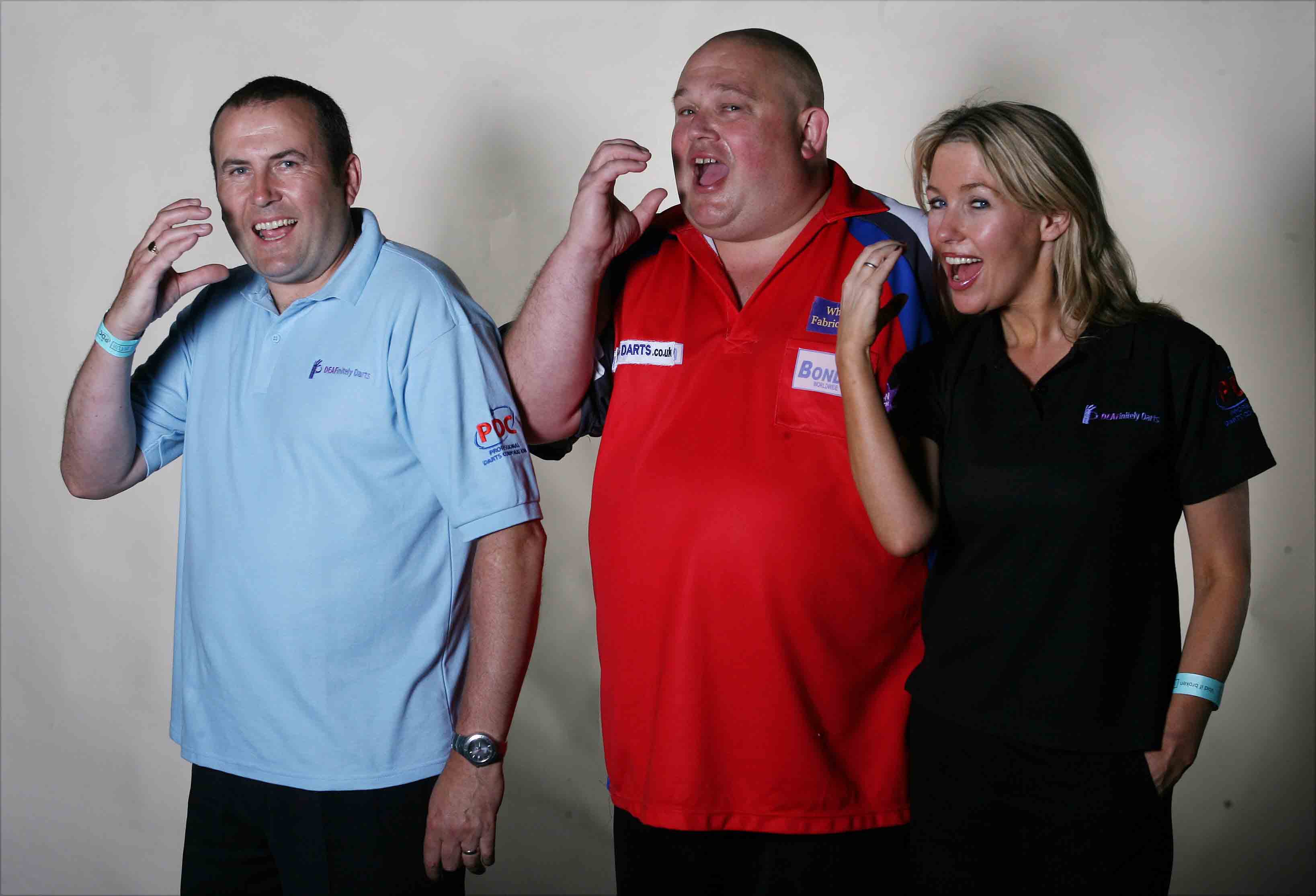 Deafinitelydarts is the name of a new campaign of the PDC and most of you probably have seen by now some of the pictures which advertise it.
Deafinitelydarts is the name of a new campaign of the PDC and most of you probably have seen by now some of the pictures which advertise it.
But what now is the reason for the pun? What has darts to do with deafness?
I first stumbled over the campaign during the UK Open. I sat there in the pressroom and watched how Lawrence Lustig the photographer of the PDC, took some unusual pictures. He took pictures of dartplayers but the results looked all like this:
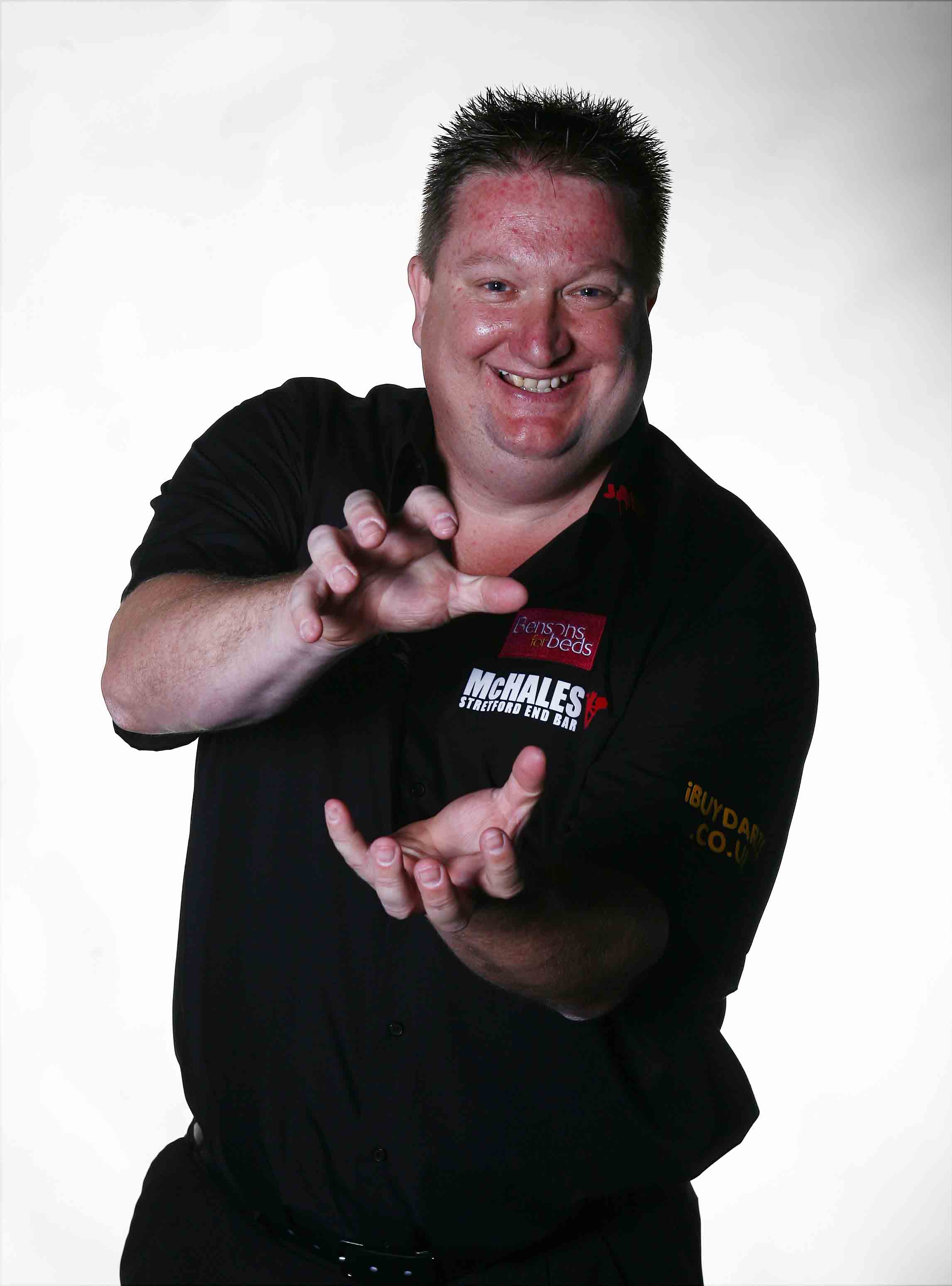
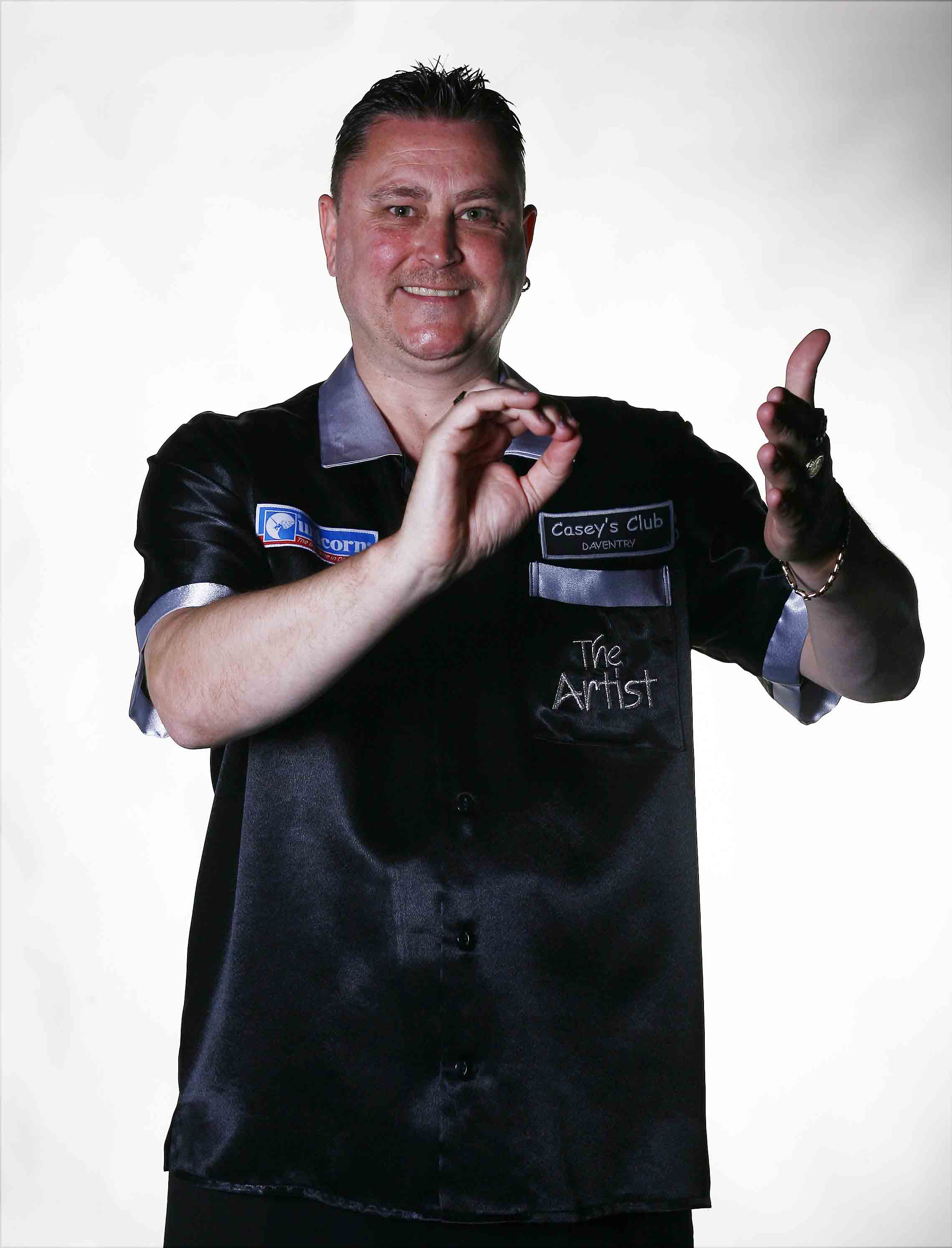
Besides this John McDonald the MC was accompanied on stage by a woman who translated everything he said into sign language.
As I was unable to make sense of what I saw I talked to Dave Allen from the PDC and to the woman who had accompanied John McDonald.
The woman was the representative of a charitable organisation which looks after the concerns of deaf people. The organisation is called Sign Health und the main concern is to improve the conditions of the deaf especially relating health care which is rather difficult.
For example when a deaf person is ill it is difficult to ring up a doctor to arrange a consultation. Of course the exist special phones for the deaf but not all have got them and they are not easy to handle. Then when you finally are in the waiting room you might not realise it when called up. And of course when you sit in the doctor's office how do you communicate?
Sign Health helps in this situation. And besides this Sign Health cares for mentally handicapped deafs offering residential care homes.
But what has darts to do with all that? Well - of course there are deaf dart players - you'll hear more about it later.
But first back to the campaign. The PDC's concern is to support SignHealth with a world record - a darting world record. To manage that world record as much dart players as possible are asked to play darts on October the 21st during a set time period and to raise money for SignHealth.
The players are asked to turn up as eight person teams in pubs and clubs all over England. Each team has to pay a starting fee of 100 pound and every player is asked for a certain amount of money. Boards, Flights and scorers are supplied for and played will be 1001 Double-In Double-Out.
Of course participants - or better - venues can win something. The venue with the most donations will be visited by a PDC Premier League player who'll hand out the winnings and play exhibition matches. And 14 more venues which collected a lot of donations will be visited by a PDC Pro.
The involvement of the PDC in such projects certainly is examplarily. And I felt provoked to find out about the deaf and the sport of darts in Germany.
I was told that in England a lot of deaf people play darts - there is no reason why that should be a problem. That made sense to me though I honestly never had thought about it before.
When I returned home to Germany I searched the internet and to be sure came upon something.
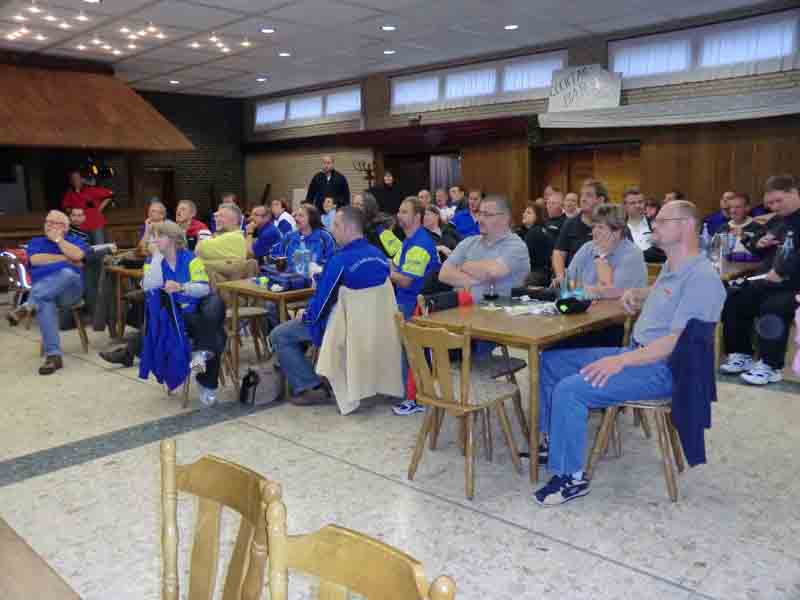 In Germany we've got the Deutschen Gehörlosen Sportverband, which has a lot of different sport branches such as soccer,
athletics, swimming and some more. And really - a darts branch exists since 2003. Darts in the DSG is a recreational
sport which means there is no financial support as it is not recognised as eligible. Played is soft-darts only.
In Germany we've got the Deutschen Gehörlosen Sportverband, which has a lot of different sport branches such as soccer,
athletics, swimming and some more. And really - a darts branch exists since 2003. Darts in the DSG is a recreational
sport which means there is no financial support as it is not recognised as eligible. Played is soft-darts only.
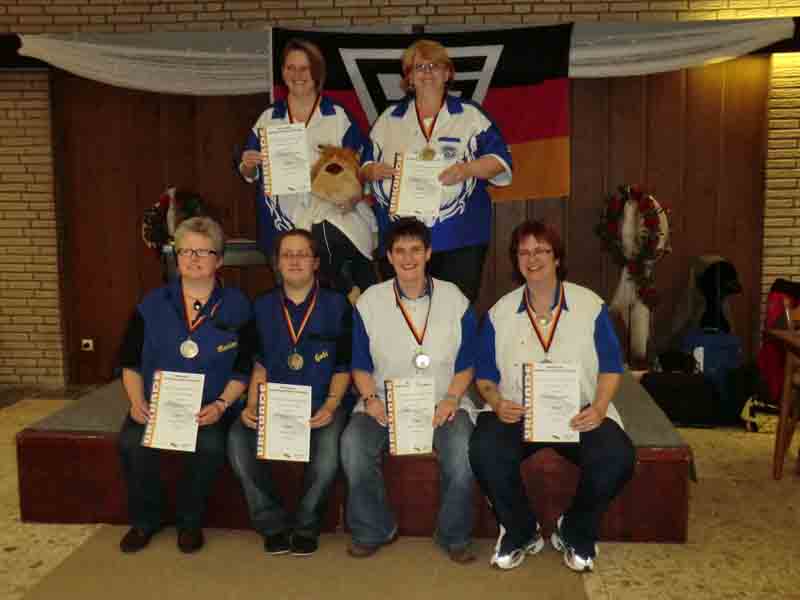 Every year a German Pairs and Single Championship is organised which is financed by the entry fees though the dart
automats are provided, this time by NSM Löwen Entertainment in Bingen. Usually 60 - 80 men and around 20 women take
part. During this tournament a seniors competition is played as well.
Every year a German Pairs and Single Championship is organised which is financed by the entry fees though the dart
automats are provided, this time by NSM Löwen Entertainment in Bingen. Usually 60 - 80 men and around 20 women take
part. During this tournament a seniors competition is played as well.
The championship this year took place in October in Wenningsen near Hannover. Played during the German Championship is always 301.
Happy winners this year - the deaf of course shed tears out of joy or frustrations as well - were in the ladies singles Angelika Seidel and in the ladies pairs Angelika Seidel/Britta Kahle, in the men's singles it were Rainer Luttman and in the doubles Horst-Dieter Hobirk/Zarko Fischer. Horst-Dieter Hobirk could win the seniors competition as well.
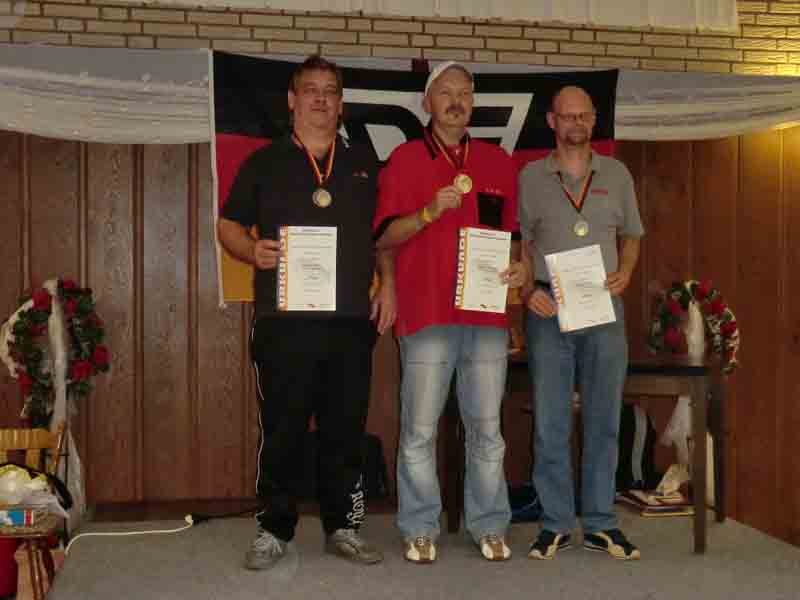
Beside the German Championship a teams championship and several regional tournaments are played as well.
Around 350 players in 35 clubs are registered with the DGS. There exist three top clubs - GSV Braunschweig, GFSK Gladenbach and HSC Schleswig - which seem to play on a much higher level then the rest. The clubs all have only deaf members and those clubs all are part of associations with different offers for deaf or hearing-impaired people, not only sports.
It seems to be rather difficult to interest the youth in darts though it's tried again and again. At the moment the DGS is working to build up international connection which don't exist till now in deaf darts.
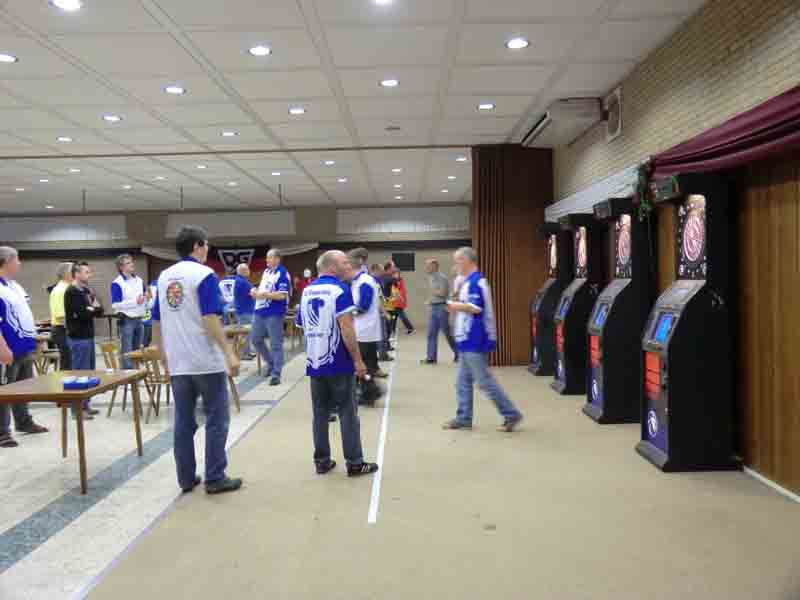 Sponsors are more then rare. When spectators visit the tournaments at all those are usually deaf as well. It might happen
a deaf dart player finds the way into a "normal" dart club but never ever a deafs dart club had a hearing member.
Sponsors are more then rare. When spectators visit the tournaments at all those are usually deaf as well. It might happen
a deaf dart player finds the way into a "normal" dart club but never ever a deafs dart club had a hearing member.
As I was assured the deaf of course would be very happy should a top player go astray to visit them - till now it never happened..
The deaf in Germany would be glad too would they get more attention, they are a marginal group as probably in most other countries. In Germany the "Deutsche Gehörlosen Bund" looks after the concerns of the around 80 000 deaf. The "Deutsche Gehörlosen Bund" already exists since 1927 and it's offers are diversified.
Two of the main concerns are the sign language , which is a legally recognised language in Germany, and families with deaf children. As I read on the homepage of the DGB, the sign language is not an universal language - each country has it's own and there even exist regional idioms.
So would all deaf around the world understand such a picture? The dart players probably would..
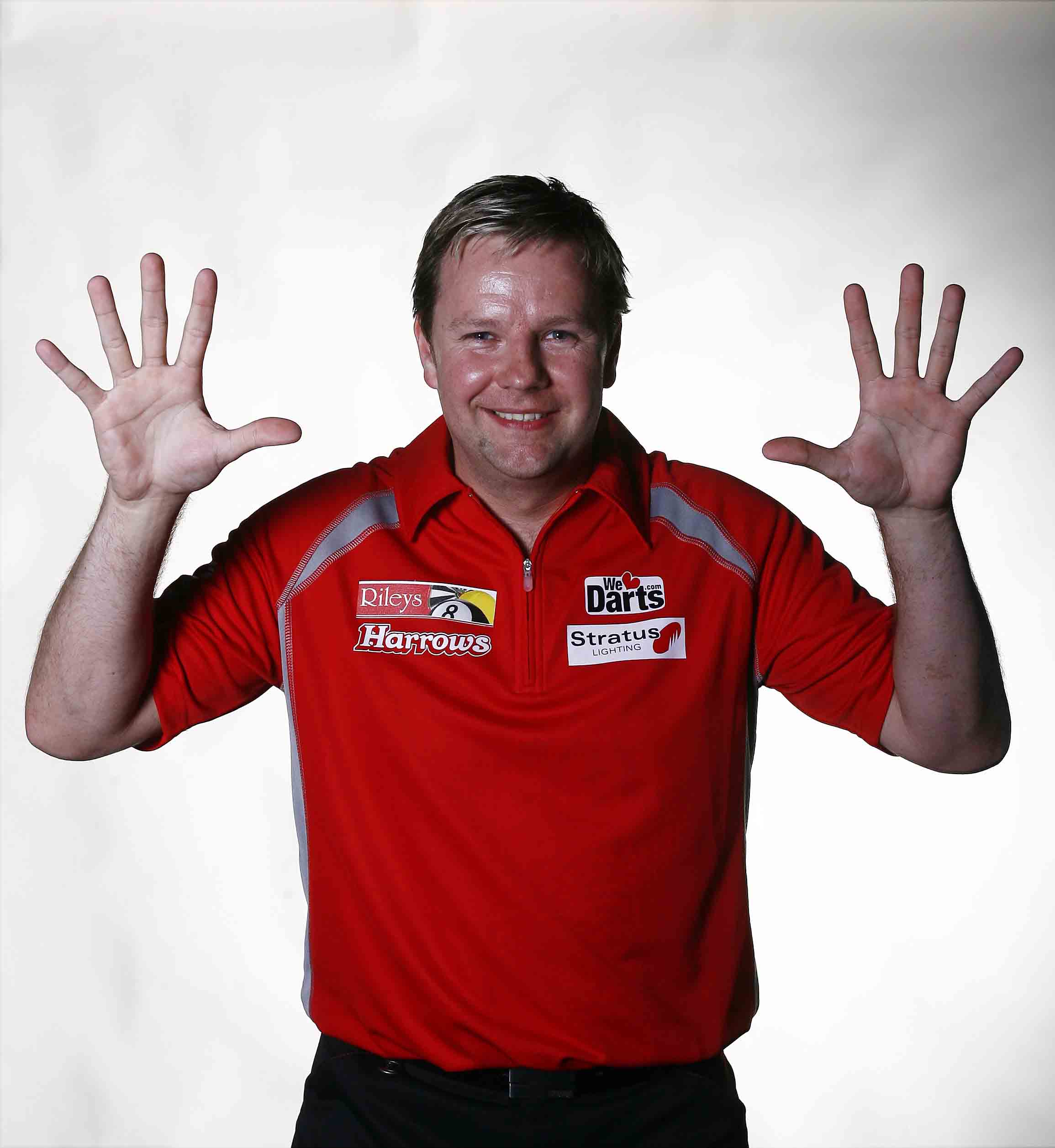
And for all hearing readers - the pictures show the players nicknames - in sign language!
Pictures with courtesy of Lawrence Lustig/PDC and the "Deutsche Gehörlosen Sportverband.